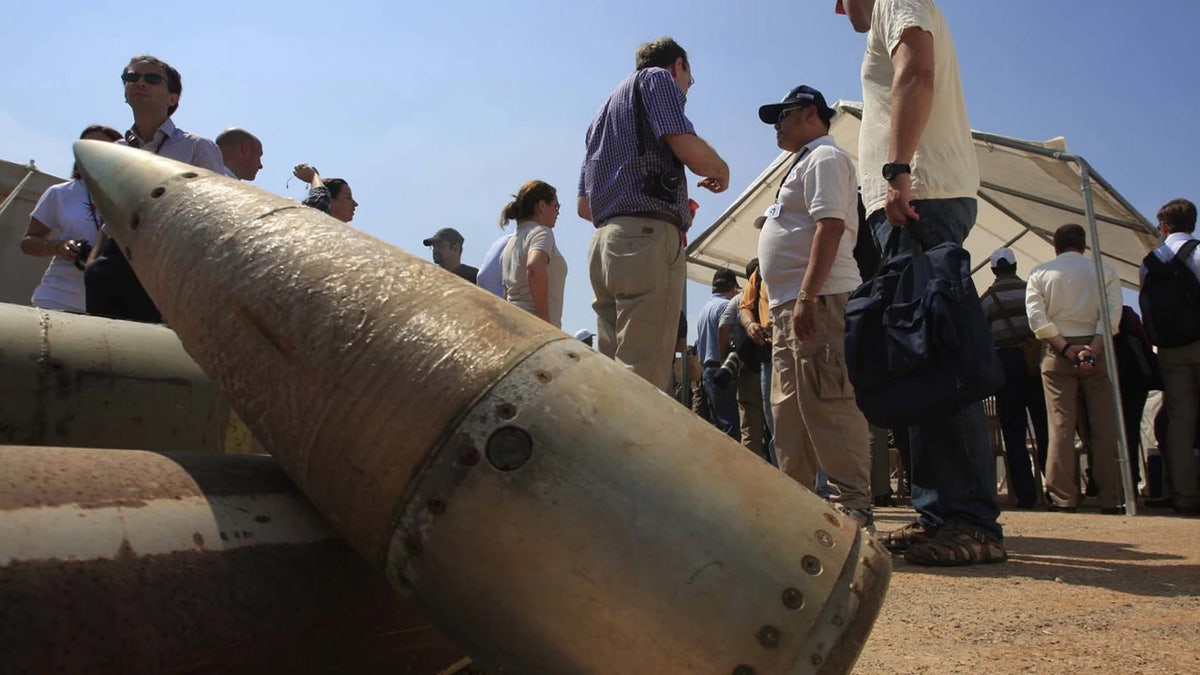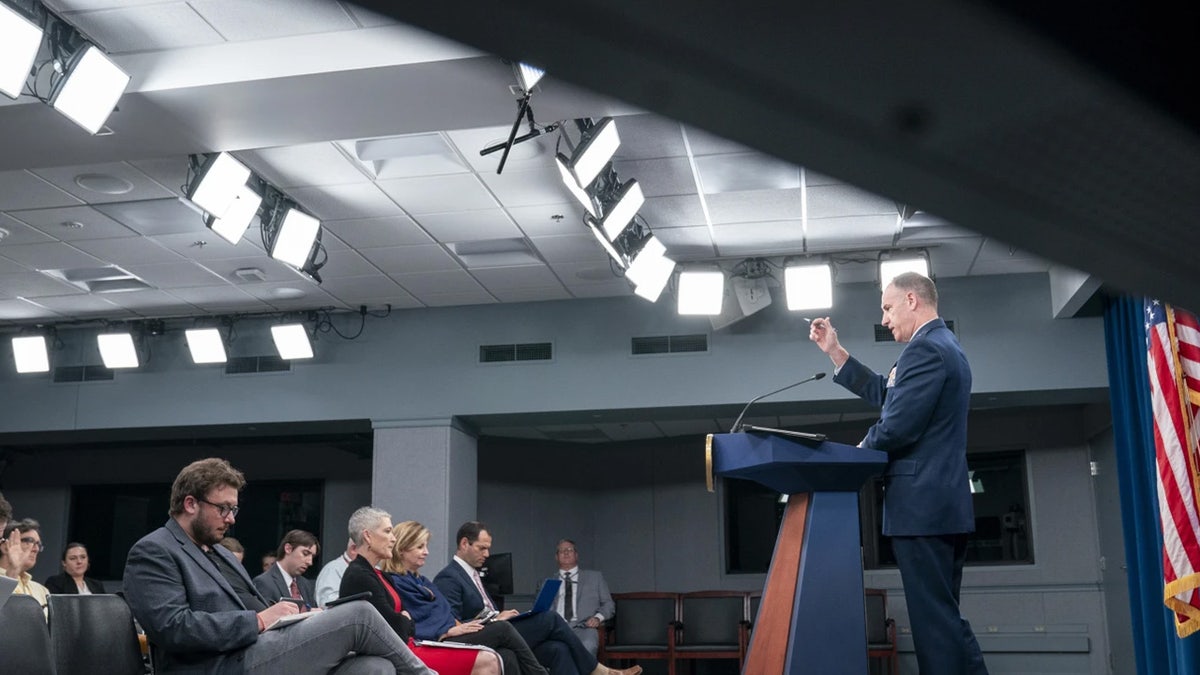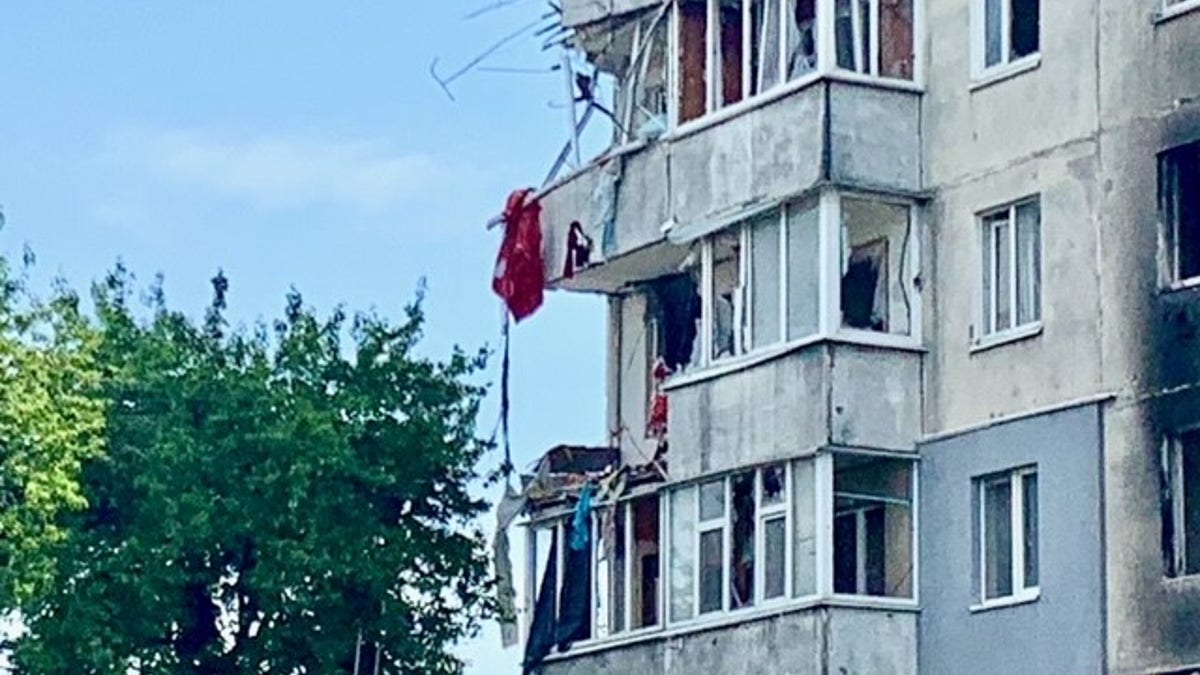Ukraine sees new wave of intense fighting
Fox News correspondent Jeff Paul has the latest on the exiled mercenary leader Yevgeny Prigozhin's moves in the Russia-Ukraine war on 'Special Report.'
The Biden administration is providing cluster munitions to Ukraine and is expected to announce additional military aid worth up to $800 million for war efforts against Russia, two U.S. officials confirm to Fox News.
The weapons will come from Pentagon stocks and will also include Bradley and Stryker armored vehicles plus an array of ammunition, such as rounds for howitzers and the High Mobility Artillery Rocket System, known as HIMARS, the officials said. A formal announcement is expected Friday afternoon.
These cluster munitions release smaller "bomblets" designed to kill personnel and destroy vehicles. One cluster munition or canister can carry tens to hundreds of these smaller bomblets. They are controversial because the small bomblets target a wide area, and once the shrapnel from the bomblets is released it does not have a specific target, posing potential threats to civilians and civilian infrastructure. Unexploded bomblets could even kill civilians long after they are released. U.S. officials said the cluster munitions the U.S. provides will have a reduced "dud rate," meaning fewer unexploded rounds to lessen civilian deaths.
Both Russia and Ukraine have used cluster munitions since Russia's invasion.

Activists and international delegations stand next to cluster bomb units, during a visit to a Lebanese military base at the opening of the Second Meeting of States Parties to the Convention on Cluster Munitions, in the southern town of Nabatiyeh, Lebanon (AP Photo/Mohammed Zaatari, File)
UKRAINE GAINED ADVANTAGE IN WAR AGAINST PUTIN WITH CUSTOM-BUILT AI: ‘UNPRECENDENTED TESTING GROUND’
While using cluster bombs is not a violation of international law, using them against civilians is.
Ukrainian officials have asked for U.S. assistance to aid their campaign to push through lines of Russian troops and make gains in the ongoing counteroffensive, a U.S. official said.

Pentagon spokesperson U.S. Air Force Brig Gen. Patrick Ryder listens to a question during a media briefing. (AP Photo/Alex Brandon)
At a Pentagon briefing Thursday, Brig. Gen. Pat Ryder said the Defense Department had "multiple variants" of the munitions, and, "the ones that we are considering providing would not include older variants with (unexploding) rates that are higher than 2.35%."
Ryder would not say whether Defense Secretary Lloyd Austin has reached out to NATO counterparts to address some of their concerns on the use of cluster munitions. Ryder said the U.S. was aware of reports that indicated some munitions had higher unexploded rates.
He further explained that cluster munitions would help Ukraine by penetrating armor and fragmenting so they can hit multiple personnel — "a capability that would be useful in any type of offensive operations."

Pentagon spokesperson U.S. Air Force Brig Gen. Patrick Ryder listens to a question during a media briefing. (AP Photo/Alex Brandon)
Oleksandra Ustinova, a member of Ukraine’s parliament who has been advocating that Washington send more weapons, noted that Ukrainian forces have had to disable mines from much of the territory they are winning back from Russia. As part of that process, Ukrainians will also be able to catch any unexploded ordnance from cluster munitions.
UN SECURITY COUNCIL HOLDS FIRST-EVER MEETING ON AI AS CONCERNS ABOUT RISK TO PEACE GROW
"We will have to de-mine anyway, but it’s better to have this capability," Ustinova said.
She credited Congress for pushing the administration over several months to change its position on the munitions.

Russian forces caused major damage to the infrastructure in Borodyanka in Ukraine (Andrew Fone/ Fox News)
Proponents of banning cluster bombs say they've killed indiscriminately and endangered civilians long after their use.
A convention banning the use of cluster bombs has been joined by more than 120 countries who agreed not to use, produce, transfer or stockpile the weapons and to clear them after they’ve been used.
CLICK HERE TO GET THE FOX NEWS APP
The United States, Russia and Ukraine are among the countries that have not signed on.
The Associated Press contributed to this report.









































